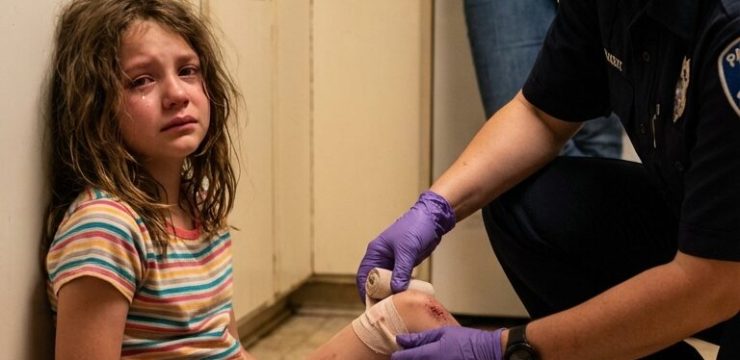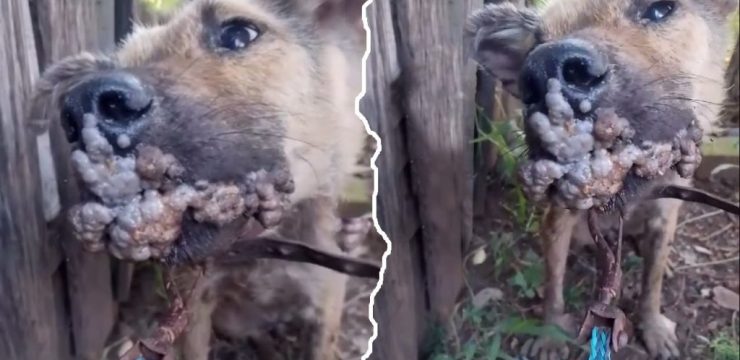For most 911 dispatchers, the job means long hours, adrenaline-filled moments, and conversations that can stay with them for years. But for Kara, a seasoned dispatcher with twelve years of experience, one particular call would forever haunt her memory — not because of chaos or violence, but because of a small, trembling voice that refused to be ignored.

It began on a quiet evening when the emergency line rang. Kara pressed her headset closer and said her usual greeting. What came back was a whisper so soft she had to hold her breath to hear it. “Please come fast,” the tiny voice said. “Someone is whispering under my bed. I hear them. I’m scared.” The caller identified herself as Mia, a five-year-old girl. Her voice shook between quick, shallow breaths.
“Mia, sweetheart, where are your parents?” Kara asked gently, keeping her tone calm to avoid frightening her further. “They don’t believe me,” Mia replied. “They say I make things up. But I can still hear it… right now.”
Kara’s blood ran cold when she realized she could faintly hear it too — something thin, faint, and wet, whispering softly in the background. This was no prank. “Stay on the line, Mia,” she said firmly. “Help is on the way.”
Within minutes, two patrol cars glided down a sleepy suburban street, lights dimmed to avoid alarming the neighbors. When the officers approached the house, the door opened before they could knock. A tired-looking man stood in the doorway, half embarrassed. “She called again, didn’t she?” he said. “She’s got quite the imagination.”
“We’ll just check to be sure, sir,” Sergeant Lewis replied. Inside, Mia sat on her bed in moon-patterned pajamas, clutching her stuffed bear. Her wide eyes didn’t move from the space beneath her bed. “The voice comes from there,” she whispered.
Officer Patel crouched, lifted the bed skirt, and shone his flashlight into the dark. Only dust, a marble, and an old crayon stared back. “It’s all clear, kiddo,” he said softly, forcing a smile. But before he could rise, Sergeant Lewis raised his hand. “Wait.”
The entire room fell silent. Kara, still listening through the phone line, heard it too — the kind of silence that stretches and breathes. Then came the sound: a soft, damp murmur, followed by three faint knocks. Mia’s eyes filled with tears. “That’s it,” she whispered. “That’s what I heard.”
Patel adjusted the flashlight again, scanning the baseboard. That’s when he noticed it — a narrow metal vent nearly hidden behind the bed frame. The whispering grew clearer. Lewis leaned closer and froze. Through the duct came a voice, cracked and hoarse: “Help.”
Mia’s mother gasped, clutching her chest. Her father’s face turned pale. Kara scribbled the word in capital letters across her incident log: HELP.
Backup arrived moments later. The officers studied the building plans and discovered that the homes were part of a post-war duplex, connected by shared walls and an old ventilation system. Patel tapped on the wall near the vent. Three knocks. Silence. Then, three faint taps came back. “It’s coming from next door,” Lewis said. “Let’s check the crawlspace.”
They crossed to the neighboring house, which was quiet and unlit. The front door was unlocked. Inside, everything looked untouched except for a sliver of light seeping from under a utility room door. The officers followed it and found a dryer pushed aside, with a sheet of plywood awkwardly leaning against the wall. Behind it, a dark hole yawned open.
“Police!” Lewis called. No response. Then, faintly, from below: “Please… help.”
Patel aimed his flashlight into the opening. The beam caught the outline of a woman curled on the dirt floor, her arm pinned beneath a metal pipe. Her gray sweater was torn, her face streaked with dust, her eyes barely open. “Ma’am, don’t move,” Lewis said. “We’re here to get you out.” Around her wrist was a medical bracelet: ALVAREZ, CAROLINE — DIABETIC.
It was a name the department knew. She’d been reported missing just a day earlier. Investigators would later learn that Ms. Alvarez had gone down to her utility room to investigate a strange noise and slipped through the hatch leading to the crawlspace. Her leg got trapped under a pipe. Too weak to yell, she had whispered for hours, her voice traveling through the vents — straight into the room of a little girl next door.
Firefighters arrived quickly and widened the opening to free her. Carefully wrapped in blankets, Ms. Alvarez was rushed to the hospital suffering from dehydration but alive. “She kept tapping,” Officer Patel told Kara over the radio later. “Long enough for that kid to hear her.” “And long enough,” Kara replied quietly, “for everyone else to finally believe her.”
Before leaving, Sergeant Lewis crouched next to Mia. “You were very brave,” he said. “You listened, and you asked for help when no one else did.” Mia nodded seriously. “I didn’t want her to be alone,” she whispered. Her mother, overwhelmed with relief and guilt, knelt beside her daughter and said through tears, “I should have listened, sweetheart.” Mia hugged her bear tight. “It’s okay,” she said softly. “We’ll believe each other next time.”
The official police report would later read simply: Caller reported unusual noise. Officers investigated. One adult female located in adjoining unit crawlspace. Rescued and transported to hospital. But within the department, the story spread quietly — a reminder shared during night shifts and at family dinners: sometimes the smallest voice is the one telling the truth.
Two weeks later, the neighborhood gathered for a potluck to celebrate Ms. Alvarez’s recovery. New vent covers were installed, crawlspaces sealed, and neighbors who once barely spoke began checking in on each other regularly. For the first time, the small community truly felt connected.
That night, as Mia settled into bed, the hum of the heater filled the room. She tucked her bear under her arm, listened closely, and smiled. No whispers this time — just warmth and safety.
The story of Mia and Ms. Alvarez became more than a police report; it became a lesson in empathy and awareness. Too often, adults dismiss children’s fears as imagination, but kids see and hear things adults overlook. Their instincts, unclouded by logic or disbelief, can sense danger or distress that others ignore.
This incident also highlighted the importance of safety in older homes — from properly sealed vents and crawlspaces to checking on neighbors who live alone. Simple awareness can make the difference between life and tragedy.
In the end, a five-year-old girl’s courage and a dispatcher’s intuition combined to save a woman’s life. What began as a whisper of fear became a story of faith, compassion, and listening. And somewhere in that small neighborhood, a young girl sleeps peacefully each night — knowing she was heard, believed, and that because she spoke up, someone else got a second chance at life.





